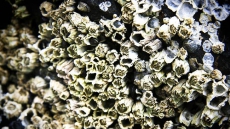Do you know why internet is always up and running in the US and Europe while people suffer many outages over the course of the day in Asia, South America and Eastern Europe?
It happens because internet goes to 'sleep' almost like a living creature in those part of the world, researchers have discovered.
"The study correlates countries with strong internet access with lower GDP - meaning that the richer a country is, the more likely it is that the internet will be up and running 24/7," said John Heidemann, research professor at the University of Southern California's Viterbi School of Engineering.
This work is one of the first to explore how networking policies affect how the network is used, Heidemann added.
There are four billion internet protocol version 4 (IPv4) internet addresses.
IPv4 is the fourth version in the development of the internet Protocol (IP) and routes most traffic on internet.
Heidemann and his team pinged about 3.7 million address blocks (representing about 950 million addresses) every 11 minutes over the span of two months, looking for daily patterns.
"This data helps us establish a baseline for the internet - to understand how it functions, so that we have a better idea of how resilient it is as a whole, and can spot problems quicker," Heidemann said.
The finding will help scientists and policy makers develop better systems to measure and track internet outages, such as those that struck the New York area after Hurricane Sandy.
"Understanding how the internet sleeps will help us avoid confusing a sleeping internet with an internet outage," Heidemann concluded.
The team's findings will be presented at the 2014 ACM Internet Measurements Conference in November in Vancouver, Canada.





